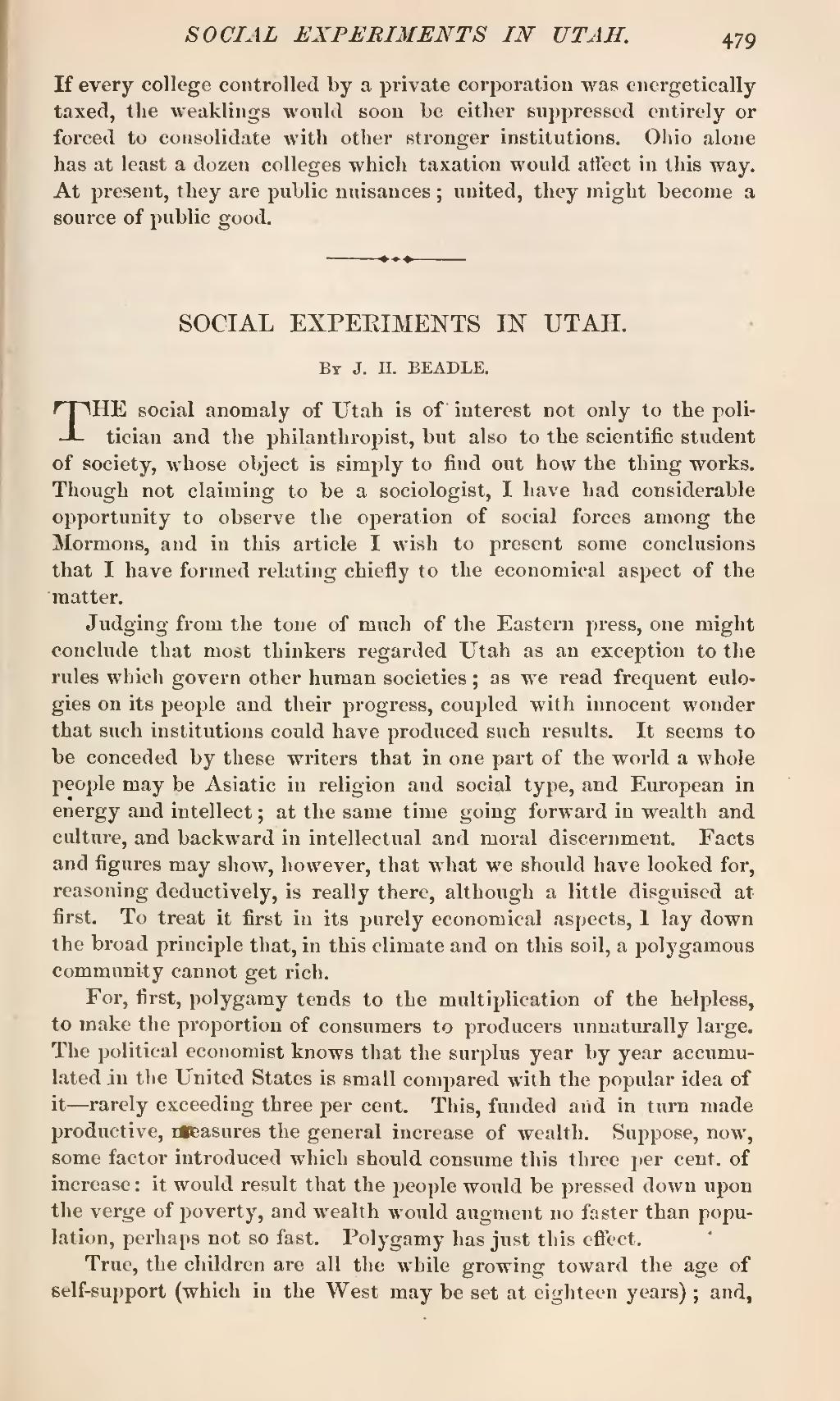If every college controlled by a private corporation was energetically taxed, the weaklings would soon be either suppressed entirely or forced to consolidate with other stronger institutions. Ohio alone has at least a dozen colleges which taxation would affect in this way. At present, they are public nuisances; united, they might become a source of public good.
| SOCIAL EXPERIMENTS IN UTAH. |
By J. H. BEADLE.
THE social anomaly of Utah is of interest not only to the politician and the philanthropist, but also to the scientific student of society, whose object is simply to find out how the thing works. Though not claiming to be a sociologist, I have had considerable opportunity to observe the operation of social forces among the Mormons, and in this article I wish to present some conclusions that I have formed relating chiefly to the economical aspect of the matter.
Judging from the tone of much of the Eastern press, one might conclude that most thinkers regarded Utah as an exception to the rules which govern other human societies; as we read frequent energies on its people and their progress, coupled with innocent wonder that such institutions could have produced such results. It seems to be conceded by these writers that in one part of the world a whole people may be Asiatic in religion and social type, and European in energy and intellect; at the same time going forward in wealth and culture, and backward in intellectual and moral discernment. Facts and figures may show, however, that what we should have looked for, reasoning deductively, is really there, although a little disguised at first. To treat it first in its purely economical aspects, I lay down the broad principle that, in this climate and on this soil, a polygamous community cannot get rich.
For, first, polygamy tends to the multiplication of the helpless, to make the proportion of consumers to producers unnaturally large. The political economist knows that the surplus year by year accumulated an the United States is small compared with the popular idea of it—rarely exceeding three per cent. This, funded and in turn made productive, measures the general increase of wealth. Suppose, now, some factor introduced which should consume this three per cent, of increase: it would result that the people would be pressed down upon the verge of poverty, and wealth would augment no faster than population, perhaps not so fast. Polygamy has just this effect.
True, the children are all the while growing toward the age of self-support (which in the West may be set at eighteen years); and,

